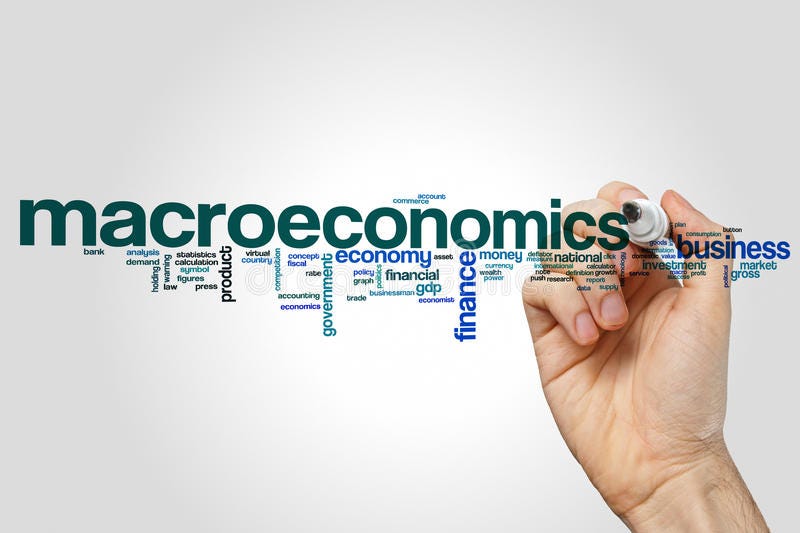 If you are a business leader or an entrepreneur, you need to be aware of the macroeconomic trends that will shape the business landscape in the coming decade.These trends will have profound implications for your strategy, operations, innovation, and competitiveness.In this post, I will highlight some of the key trends and how you can prepare for them.
If you are a business leader or an entrepreneur, you need to be aware of the macroeconomic trends that will shape the business landscape in the coming decade.These trends will have profound implications for your strategy, operations, innovation, and competitiveness.In this post, I will highlight some of the key trends and how you can prepare for them.
SUSTAINABILITY The climate crisis, environmental degradation and social inequalities are putting pressure on businesses to adopt more sustainable practices and solutions.Consumers, investors, regulators, and employees are demanding more transparency, accountability, and responsibility from businesses.Businesses that embrace sustainability as a core value and a competitive advantage will be able to create long-term value, reduce risks and seize opportunities in the green economy.Businesses will need to adopt more environmentally and socially responsible practices to meet the growing demand from all stakeholders.Sustainability will also be a source of innovation and competitive advantage for those who can offer solutions to global challenges such as climate change, resource scarcity and inequality.
On the flip side, also expect to see more greenwashing, where companies pretend to be environmentally friendly but are actually not
TALENT SHORTAGE The aging population, low fertility rates and migration patterns are creating a talent gap in many sectors and regions.
Businesses will face challenges in attracting, retaining, and developing skilled workers in a tight labor market.Businesses that invest in reskilling, upskilling and lifelong learning for their workforce will be able to adapt to changing skill requirements, enhance productivity and foster innovation.
As the workforce ages and skills gaps widen, businesses will face a shortage of qualified talent in many sectors and regions.Talent will also become more mobile and flexible, requiring businesses to adapt to new ways of working and collaborating.Beyond reskilling and upskilling, there will need to be more empathy in leadership through improvement of compensation and benefit packages that will enhance a sense of growth for the populace.On the flip side, also expect to see more complaints from employees who still feel overworked and underpaid.
SHIFT IN JOB ROLES The digital transformation, automation and artificial intelligence are changing the nature of work and the skills needed for it.
Many jobs will be replaced, augmented, or created by recent technologies.Businesses will need to rethink their organizational structures, processes, and cultures to enable more agile, collaborative, and human-centric work models.Businesses that leverage technology to empower their workers, enhance their creativity and improve their well-being will be able to gain a competitive edge.Job roles will also become more fluid and dynamic, requiring workers to constantly learn and adapt to changing demands.
On the flip side, also expect to see more confusion, conflict, and chaos as workers try to figure out what they are supposed to do and who they are supposed to report to.
POOR ECONOMIC PRODUCTIVITY The global economy has been experiencing a slowdown in productivity growth since the 2000s, due to factors such as weak investment, low innovation, structural rigidities, and geopolitical uncertainties.The COVID-19 pandemic has exacerbated the productivity challenge by disrupting supply chains, demand patterns and business operations.Businesses will need to boost their productivity by adopting more efficient, flexible, and resilient practices and technologies.Businesses that innovate, optimize, and diversify their offerings, markets and partnerships will be able to overcome the productivity slump.As the growth rate of the economy slows down and the debt level rises, businesses will have to cope with lower profits and higher costs.This is expected to birth acceleerated innovation, efficiency, and diversification.
On the flip side, also expect to see more layoffs, bankruptcies, and mergers
THREAT OF RECESSION The global economy has been facing recurrent shocks and uncertainties since the 2008 financial crisis, such as trade wars, Brexit, geopolitical conflicts, and health emergencies.The COVID-19 pandemic has triggered a deep recession in many countries, with lasting social and economic impacts.Businesses will need to prepare for more volatility, complexity, and ambiguity in the global market.Businesses that build financial strength, operational agility and strategic foresight will be able to survive and thrive in turbulent times.
On the flip side, also expect to see more panic, pessimism, and paranoia as businesses brace for the inevitable crash.
EMERGING TECHNOLOGY The rapid advancement and diffusion of new technologies such as 5G, cloud computing, blockchain, biotechnology and quantum computing are creating new opportunities and challenges for businesses.These technologies are enabling new products, services, processes, and business models that can disrupt existing markets or create new ones.Businesses will need to embrace digital transformation as a strategic imperative and a source of innovation.Businesses that adopt emerging technologies early, experiment with them boldly and integrate them seamlessly will be able to gain a competitive advantage.On the flip side, also expect to see more hype, hype cycles, and hype backlash as businesses chase the next big thing.
SYSTEMIC MISTRUST The erosion of trust in institutions, authorities and information sources has been undermining social cohesion, political stability, and economic growth.The COVID-19 pandemic has exposed the fragility of trust in times of crisis and uncertainty.Businesses will need to rebuild trust with their stakeholders by demonstrating their purpose, values, and impact.
Businesses that communicate clearly, authentically, and consistently, engage proactively with their stakeholders, and deliver on their promises will be able to enhance their reputation and loyalty.On the flip side, also expect to see more scandals, lawsuits, and boycotts as businesses face scrutiny and criticism from all sides
These are some of the macroeconomic trends that will shape the business landscape in the coming decade.They present both challenges and opportunities for businesses that want to succeed in the future.As a business leader or an entrepreneur, you need to be aware of these trends, understand their implications for your business and act accordingly.I hope this blog post has given you some insights and inspiration on how to do so.
